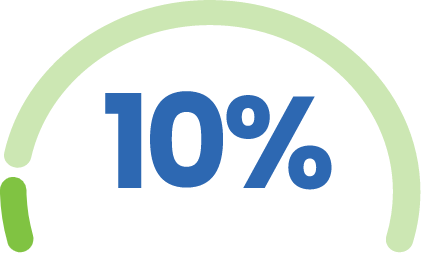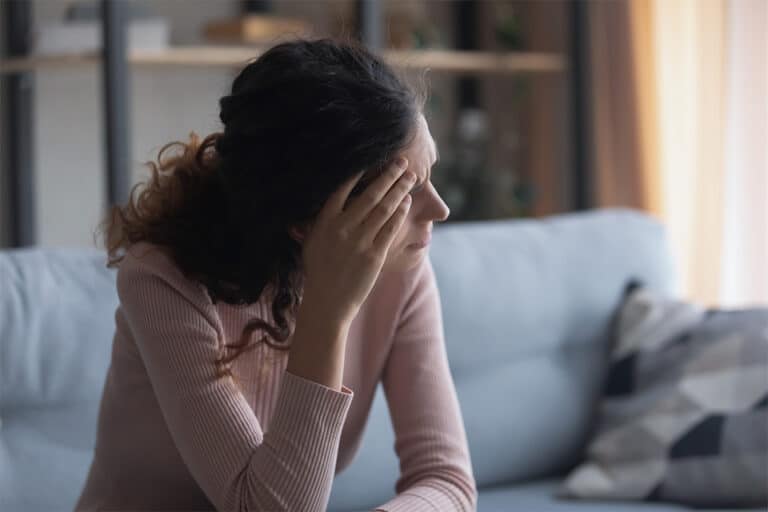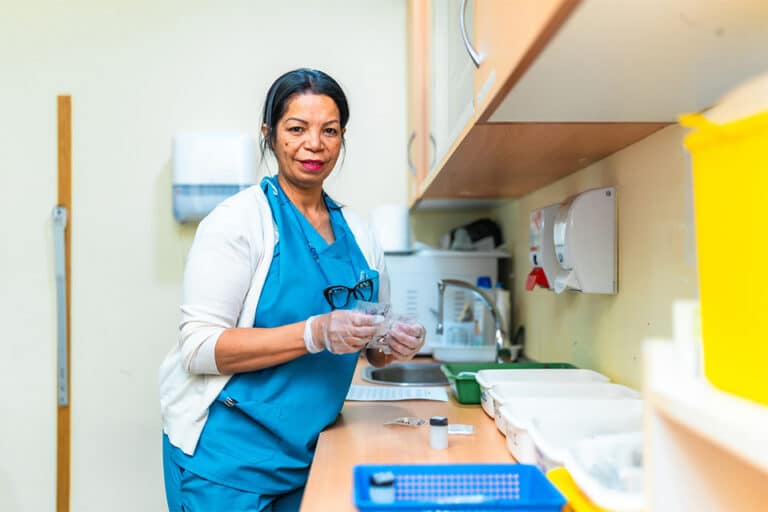The Harsh Reality of Opioid Addiction
Last year, over 50,000 people died in the United States because of overdosing on opioids like oxycodone and hydrocodone. If you have opioid use disorder, there is a 4% chance that you will die within a year. If left untreated, you have a 40% chance of not making it to the next decade.
OUD can cause homelessness, unemployment, crime, family problems, and overdose deaths. Health care that utilizes evidence-based opioid use disorder medication can dramatically change these dire statistics.
Substance Use Disorders Don’t Pick Favorites
Anyone can fall into opioid dependence, regardless of background, income, or family ties. Maybe your doctor prescribed opioids to relieve your pain, and before you knew it, you became hooked. Maybe you started using it to cope with stress or depression. Understanding that opioid use disorder medication can help is the first step toward reclaiming your life.
The Battle of Withdrawal and Failed Detox
The physical and mental anguish of withdrawal is beyond words. The symptoms can be so brutal that it feels impossible to quit. If you’ve tried quitting “cold turkey,” attempted detox, or even joined traditional treatment programs but found yourself relapsing, you’re not alone.
Sadly, over 90% of people who try these methods use them again. And when you relapse, your risk of opioid overdoses increases. Therefore, opioid use disorder medication is not just an option but often a necessity
The Role of Opioid Use Disorder Medication in MOUD
Here’s the silver lining: Medication Treatment for Opioid Use Disorder (MOUD) can be a lifesaver—literally. MOUD uses medications to treat opioid use disorder, like methadone and buprenorphine, to help ease those nasty withdrawal symptoms and cravings. These meds stabilize chemical imbalances in your brain, reducing the euphoric effects of opioid use and giving you a fighting chance at recovery.
Supporting Your Journey: More Than Just Medication
Opioid use disorder medication is a cornerstone of MOUD, but it’s not the entire solution. Community Medical Services offers a full range of support services alongside your medication.
It’s like a toolbox for your recovery. It includes therapy, job search support, and help finding a place to live. We provide all these services alongside your medical treatment.
Is Long-term Opioid Use Disorder Medication Safe?
Are you worried about the long-term effects of these medications? You’ll feel relieved knowing that meds like methadone and buprenorphine offer long-term safety. They don’t damage your heart, liver, or any other organs. Each patient’s journey is unique; some may need medication for a few months, while others may need it for years. What’s important is that it offers a more stable pathway to recovery.
Battling the Stigma Surrounding Opioid Use Disorder Medication
It’s heartbreaking that only a fraction—about 10%—of individuals grappling with Opioid Use Disorder (OUD) are accessing medication that could save their lives.
The stigma surrounding addiction and its treatment through medication contributes significantly to this disheartening statistic.

DEBUNKING MOUD MYTHS
Firstly, it’s crucial to debunk the myth that choosing Medication for Opioid Use Disorder (MOUD) signifies weakness, lack of willpower, or moral failure. This viewpoint is outdated, harmful, and, frankly, untrue. Addiction is a complex medical condition affected by genetics, environment, trauma, and psychological influences. No one chooses to become addicted, and getting help is an act of strength.
REAL STORIES, REAL RECOVERY
Real-life stories demonstrate the success of MOUD. These aren’t just numbers and data but human experiences. People who were once in the iron grip of addiction are now leading fulfilling lives, maintaining jobs, and nurturing family relationships, all thanks to MOUD. We need to share these stories to challenge societal prejudices and inspire hope.
SHIFTING SOCIETAL PERSPECTIVES
SHIFTING SOCIETAL PERSPECTIVES Society’s views on addiction and its treatment are slowly evolving. A more empathetic understanding is taking root, seeing addiction as a medical issue rather than a moral failing. The more we talk openly about OUD and its viable treatments like MOUD, the more we can dispel the myths that prevent people from seeking help.
YOUR BRAVE STEP
Opting for opioid use disorder medication is a brave step toward a healthier life. Medical professionals and a growing body of evidence support this decision, proving its efficacy. If you or someone you value is struggling with OUD, remember that MOUD is not a weakness but a symbol of hope.
FAQs on Opioid Use Disorder Medication
FAQs on Opioid Use Disorder Medication We often hear, “When can I stop the medication?” Imagine if we asked people with diabetes when they would stop taking insulin—it doesn’t make sense. MOUD and opioid use disorder medication are often long-term commitments that aim to give you a real shot at everyday life.
In the battle against OUD, knowledge is power. Opioid use disorder medication combined with a full spectrum of support services can be your lifeline. You don’t have to go it alone.
HOW DOES MOUD WORK?
In simple terms, imagine your brain has been riding a rollercoaster because of opioids. Opioid use disorder medication acts like the seatbelt on that rollercoaster, making the ride safer and more stable so you can get off when you’re ready.
CAN I AFFORD THIS TYPE OF TREATMENT?
Are you worried about costs? You’re not alone. The good news is that most insurance plans cover MOUD, and financial assistance programs exist for those who need them. Don’t let money be the reason you don’t get help.
SHOULD MY FAMILY KNOW I’M ON MOUD?
Support from loved ones is crucial in your recovery journey. MOUD often includes offering family counseling, which gives your family tools to help you succeed.

IS MOUD LEGAL?
Yes, doctors prescribe medications like methadone and buprenorphine, considering them the gold standard for treating OUD.
WHAT IF MEDICATION ISN’T FOR ME?
MOUD isn’t the only path. Some choose behavioral therapy, 12-step programs, or holistic approaches like yoga and meditation. We’re all different, and what works for one might not work for another.
WHAT ARE THE KEYS TO SUCCESS DURING MOUD TREATMENT?
Regular exercise and a balanced diet can make your opioid use disorder medication more effective. Think of it as a team effort to get you back on track.
WHAT HAPPENS AFTER MY TREATMENT?
Continual care and check-ins are essential. We’ll help you create a post-treatment plan to ensure you stay on the path to recovery.
IS IT SAFE TO TAKE OTHER MEDICATIONS WHILE ON MOUD?
Most medications for opioid use disorder are compatible with other prescribed medications. You should tell your healthcare provider about all the medications you are taking. This includes any medications you buy without a prescription and any herbal supplements.
Your healthcare provider needs to have this information. This is to ensure there are no dangerous interactions. Always double-check with your MOUD provider if they prescribe something new to you.
CAN I TRAVEL WHILE UNDERGOING TREATMENT?
Traveling while on MOUD is possible, but it requires some planning. Many MOUD programs offer “take-home” doses of medication. Still, these are often only available to patients who have been in the program for an extended period and have a stable, compliant treatment history. Always discuss your options with your healthcare provider before any planned trips.
WHAT HAPPENS IF I MISS A DOSE?
Missing a dose of your opioid use disorder medication can be worrisome, but staying calm is essential. Contact your healthcare provider for advice on how to get back on track. Do not double up on your next dose unless your medical team advises. To avoid missing a dose, it’s essential to take your medication every day as part of your routine in MOUD.
Ready For A Change? Here’s How To Start
At Community Medical Services, we want to help you reclaim your life. For more information on your opioid use disorder medication options, find a nearby clinic or call us today at 855-203-6352.












